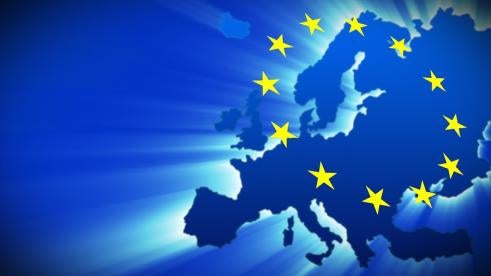The Netherlands
A. Dutch Competition Authority (ACM) decisions, policies, and market studies.
1. ACM continues action against misleading sustainability claims in the clothing sector.
Because some clothing companies market themselves as sustainable but exaggerate and cannot substantiate their claims, in early 2021 ACM published five rules for honest sustainability claims and then launched investigations and asked over 70 companies in the clothing sector to critically examine their claims. The ACM itself looked into the sustainability claims of 10 major clothing companies for accuracy, clarity, and verifiability, and requested information from two Dutch and four non-Dutch clothing companies to assess seemingly misleading claims.
On Nov. 4, 2021, ACM announced the results of its investigations and will ask regulators in the non-Dutch company countries to take action against those companies. ACM can take action against the two Netherlands-based companies and can impose fines or orders subject to periodic penalty payments on companies that misled consumers about the sustainability aspects of their products.
2. ACM penalizes energy company Enstroga for continuing to terminate energy supply to customers with fixed-rate energy contracts.
On Nov. 2, 20211, ACM announced a penalty against energy company Enstroga for continuing to terminate energy supply to customers that did not agree with changes to their fixed-rate energy contracts. Initially, ACM ordered Enstroga to comply with the regulation and imposed incremental penalty payments. Nevertheless, the energy company continued to terminate contracts because it was struggling with high energy prices. Given Enstroga’s ongoing noncompliance, ACM penalized the company EUR15,000.
3. New European rules to protect consumers against fake discount offers.
Because consumers sometimes do not know whether a “special deal” is real – i.e., whether the “sales” price or limited-time offer price is a legitimate discount – Dutch law prohibits sellers from misleading consumers with fake discounts. Products must have been sold at the presented “was” price for three months prior to the special offer. (The “was” price also is referred to as the reference price against which the “now” price is compared.)
On Nov. 24, 2021, the ACM announced the result of its investigation into “special offers” using “was” and “now” prices, concluding that web shops regularly made non-genuine offers. New European rules will come into effect mid-2022 to better protect consumers against fake offers. To prevent businesses from charging a high price for a short period before the special price offer – thereby overstating the price advantage for consumers – the “was” price must be the lowest price the trader has charged for 30 days prior to the special offer.
4. EU Court of Justice ruling on independence of German energy regulator has consequences for ACM’s energy-related duties.
In September 2021, the highest European court ruled on the independence of the German energy regulator, finding that the creation of certain energy-related rules fall under the purview not of a national legislature but of the member state’s independent national regulator. Therefore, this ruling affects the ACM’s energy-related obligations.
On Nov. 29, 2021, the ACM discussed the importance of independent regulators and the ruling’s consequences for Dutch regulations and ACM’s decision-making processes. Setting transmission and distribution tariffs and setting rules for system connection and access to the national grids are within ACM’s purview. ACM will determine what these other consequences will be over the next few months.
United Kingdom
A. Previews for 2022
1. Reform of the UK system?
On July 20, 2021, the UK government published a consultation paper setting out proposals for wide-ranging reform to the UK’s competition and consumer protection policy. The consultation ended Oct. 1, and on Oct. 4 the UK Competition and Markets Authority (CMA) published its response to the consultation. Reform proposals supported by CMA include:
-
Merger control: Due to concerns about large firms acquiring startups or potential new entrants, CMA proposes an additional threshold that gives it jurisdiction over a merger involving at least one party with supply share of at least 25% of a particular category of goods and services and a UK turnover of more than £100 million. The existing turnover threshold applies to the target business only and may increase to £100 million.
-
Antitrust enforcement: To further incentivize firms to apply for immunity, CMA proposes extending full immunity from liability for damages to those undertakings currently granted immunity in cartel investigations.
In parallel, to protect competition in digital markets from a concentration of power in a small number of large digital companies, the UK government proposed a new, pro-competition regime for digital markets. On Sept. 29, 2021, CMA published a brief, supportive response to the digital proposals. As the government is still considering responses to its consultation, it may be some time before further steps are taken towards legislation.
2. Implementation of CMA’s Annual plan.
On Dec. 2, 2021, CMA published a consultation draft of its 2022/2023 annual plan, which sets out the five main themes on which CMA will focus when the plan is implemented in April 2022.
-
Protecting consumers from unfair behavior by businesses, during and beyond the COVID-19 pandemic: CMA’s future focus will include enforcing consumer protection rules in markets where consumers appear to suffer detriment – examples listed include leasehold housing, misleading green claims, fake and misleading online reviews, social media endorsements, children’s social care provision, and IVF. CMA will also continue to enforce the UK competition rules against firms that price at artificially high levels through resale price maintenance and excessive and unfair pricing.
-
Fostering competition to promote innovation, productivity, and long-term growth across the UK: CMA intends to use existing tools to promote competition and protect consumers, given the ongoing impact of the pandemic. CMA recently has imposed significant penalties on firms that failed to provide information to CMA, or to comply with orders to hold an acquired business separate pending the outcome of CMA’s merger investigation.
-
Promoting effective competition in digital markets: CMA will continue its work with the UK government on proposals for legislation that will introduce a pro-competition regime for digital markets. Timing is unclear, but when in force this new regime will provide for intervention to open digital markets to greater competition and require firms designated by CMA’s Digital Markets Unit as having strategic market status (SMS) to notify CMA of their mergers under a special merger control regime that requires them to suspend completion until CMA approval has been granted.
-
Supporting the transition to low carbon growth, including through development of healthy competitive markets in sustainable products and services: CMA is expected to provide advice on this subject to the UK government in early 2022. In the meantime, CMA will continue to combat practices that may impede the transition to a low carbon economy, including measures to reduce the foreclosure effect of exclusive agreements in the electric car charging market.
-
Delivering CMA’s new responsibilities and strengthening its position as a global competition and consumer protection authority: Brexit has expanded the range of issues within CMA’s remit. Many merger, cartels, and abuse of dominance cases with an EU dimension that included the UK would previously have been the exclusive purview of the EU. Now, CMA alone can take action over the UK aspects, investigating in parallel with regulators in other jurisdictions. Due to Brexit, the EU Single Market rules no longer apply to the UK; however, goods and services must be able to move freely across the four UK nations, and monitoring obstacles to the effective operation of the UK internal market is now CMA’s responsibility, through its Office for the Internal Market.
3. Greater international cooperation following the November 2021 G7 summit.
The heads of the competition authorities of the G7 (Canada, France, Germany, Italy, Japan, UK, USA, together with the EU and guest countries Australia, India, South Africa, and South Korea) held their first-ever two-day digital summit at the end of November 2021, hosted by CMA at its London headquarters. The aim of the summit was to increase collaboration on competition issues in digital markets and discuss policy priorities and competition law issues arising from a number of digital market features, such as app stores, online marketplaces, digital advertising, mobile ecosystems, cloud computing, and algorithms. At the same time, the attendees jointly published a compendium outlining their approaches to addressing competition issues in digital markets and highlighting shared approaches and tactics. The compendium provides a useful overview of key issues for the G7, the steps being taken to strengthen competition authorities’ capacity and knowledge base to enable them better to address these issues, areas for reform of their enforcement tools, and the importance of cooperation among regulators, both nationally and internationally.
Poland
A. First foreign direct investment decision issued in second phase proceedings.
Due to the COVID-19 pandemic, in 2020 Poland implemented a temporary foreign direct investment control regime (FDI). The regime grants the president of the Polish Office of Competition and Consumer Protection (“UOKiK”) powers to examine transactions concerning the acquisition of Polish undertakings with turnover exceeding EUR 10 million in any market where the undertaking is:
-
active in particularly significant sectors of industry including IT, telecommunication, energy, fuels, pharma and medical devices, food processing, and arms and ammunition; and
-
which have at least one share admitted to trading on a regulated market or introduced to trading in an alternative trading system in Poland; or
-
which possess property disclosed in the official list of facilities, installations, devices, and services included in critical infrastructure.
The obligation to report transactions to UOKiK applies to acquirers with their registered office or citizenship (for natural persons) outside a member country of the EU, European Economic Area, and Organisation for Economic Co-operation and Development. Clearance under the FDI regime does not exempt acquirers from the obligation to obtain separate antitrust merger clearance if relevant conditions to notify the transaction are met.
The investment control procedure consists of two phases. The first phase is the preliminary investigation, serving to examine simple cases that require no further investigation. Most cases end at this stage. However, cases that may pose a serious threat to public order, public safety, or public health may be referred for more detailed control proceedings (phase two).
The acquisition of Odlewnia Zawiercie by Meide Group was the first case that required a second phase investigation. During the proceedings, UOKiK asked various Polish ministers for their opinions on the transaction, including the minister of defense and the minister of internal affairs and administration. The proceedings lasted approximately five months. Ultimately, the transaction was cleared, as the investigation showed no threat to public safety and order. The UOKIK president noted that manufacture and sale of weapons-related products represents an insignificant part Odlewnia Zawiercie’s business activities.
B. UOKiK president investigates misleading practices in influencer marketing.
The UOKiK president initiated an investigation into influencer activity aimed at misleading consumers, commonly known as scams. Scams include, among other things, informing consumers about non-existent promotions, concealing important features of a product, exaggerating the properties or purpose of the advertised product, or offering products harmful or dangerous to health. According to the UOKiK president, recipients of social media content are mostly young people who, despite their familiarity with new technologies, cannot necessarily distinguish between neutral information and advertising.
In accordance with Polish law provisions, commercial content on influencer profiles on various social media sites should be labelled as advertising. However, most of the commercial content on social media is not marked at all or is labelled insufficiently. For instance, influencers use only the hashtag #ad or #sponsoredby, which may not be comprehensible to Polish internet users. Also, influencers generally are not aware of their responsibility and legal obligations, as some of them did not even reply to the UOKiK president’s request for information.
Italy
A. ICA opens investigation into Wind Tre S.p.A. for abuse of economic dependence against its resellers.
On Nov. 4, 2021, the Italian Competition Authority (ICA) launched an investigation into the telecommunication company Wind Tre S.p.A. regarding a possible abuse of economic dependence relating to Wind’s imposition of economically unsustainable terms and conditions on its resellers. The procedure was initiated following a reseller complaint.
First, the contracts at issue provided for an exclusivity obligation in favor of Wind by virtue of a noncompete clause as well as several tying obligations regarding furniture and commercial materials to be used by resellers. Moreover, Wind allegedly imposed value added tax (VAT) costs upon the resellers through a reverse charge mechanism, under which the entire credit, including the VAT paid by the end consumer, was transferred to Wind, and the reseller had to pay the VAT on each transaction, deducting the amount from the commissions accrued.
Furthermore, according to the ICA, Wind required several unilateral changes to the resellers’ compensation plan and, in the end, it withdrew from the contracts with some of the resellers without justification or penalty. On the other hand, any withdrawal on the part of the reseller would have entailed the repayment of commissions already received in relation to installments not yet paid by customers.
Wind now has 60 days to be heard by the ICA, with the procedure due to terminate before Dec. 31, 2022.
B. Italian government approves draft Law on Market and Competition of 2021: main provisions.
On Nov. 4, 2021, the Italian Council of Ministers approved the draft Law on Market and Competition of 2021. The draft law, which is part of the National Recovery and Resilience Plan, now is being reviewed by the Italian Parliament, which must give final approval.
The text incorporates many of the legislative proposals made by the ICA in March 2021, and it aims to, among other things, align the latter’s action to that of the European Commission with reference to anti-competitive agreements and merger control. As for the agreements, the government has agreed to introduce the settlement procedure in national antitrust proceedings. Regarding merger control, the government intends to adapt the test for the substantial assessment of mergers set out in the EU Merger Regulation and used by the European Commission, i.e., the significant impediment of effective competition (SIEC) test. Moreover, the system for calculating the turnover of credit and financial institutions will be aligned with the EU Merger Regulation, and the distinction between concentrative and cooperative joint ventures will be removed.
In addition, the government has followed several of the ICA’s suggestions regarding strengthening the merger control system. First, the ICA would be given the power to request notification of certain transactions that do not exceed the turnover thresholds set forth in Law no. 287/90. Moreover, the government proposes to amend Article 9, of Law no. 192/1998 by establishing a presumption of economic dependence upon operators who have a commercial relationship with providers of intermediation services via digital platforms which “play a decisive role in reaching end users and/or providers, also in terms of network effects and/or data availability.” The bill then indicates a series of conduct that may constitute an abuse of economic dependence.
European Union
A. AG Rantos clarifies temporal scope of the Damages Directive.
A Spanish National Court—in an action for damages brought by an alleged victim of the “truck cartel”—referred to the EU Court of Justice (CJEU) a question on the temporal scope of certain provisions of Directive 2014/104/EU on actions for damages under national law for competition law infringements (“Damages Directive”). Specifically, the question concerned the scope ratione temporis of the provisions regarding the limitation period and the assessment of harm.
In its Oct. 28, 2021 opinion, Advocate General Athanasios Rantos first stressed that the Damages Directive distinguishes between substantive provisions, which do not apply retroactively to “situations existing” before its effective date, and procedural provisions that can be applied retroactively. According to the AG, the provision regarding the five-year limitation period does not apply to an action that concerns facts that occurred before the latter entered into force. Likewise, the provision setting out a presumption of harm caused by cartels has a substantive nature. Hence, it is not applicable to actions related to infringements that occurred before the effective date of national “transposing laws”— i.e., the State measures to implement the Damages Directive.
By contrast, national transposing measures concerning the courts’ power to assess the harm caused by the infringement have a procedural nature. Therefore, they can apply to actions related to infringements that ceased before the effective date of the national transposing legislation.
B. European Court of Justice (ECJ) answers preliminary questions regarding article 101 TFEU.
On Nov. 18, 2021, the ECJ answered preliminary questions on criteria that need to be assessed when analyzing compliance of client reservation systems between distributors. In December 2013, the Latvian Competition Authority (LCA) fined SIA Visma Enterprise for a clause in its accounting software distribution agreements that, according to the LCA, restricted competition between its distributors.
The ECJ ruled (link in Dutch) that Art. 101 (1) TFEU must be interpreted to mean that a prohibition “by object” only exists when there is a sufficiently appreciable level of distortion (i.e., the relevant agreements are intended to prevent, restrict, or distort competition). Furthermore, the ECJ stated that Art. 101 (3) TFEU may be justified if the agreements satisfy the four cumulative conditions set forth in paragraph 3. This requires that the benefits of the restriction outweigh any anticompetitive effects.
C. EU Commission imposes EUR 20 million fine for participating in cartel of canned vegetable retailers.
The European Commission fined Conserve Italia EUR 20 million for breach of EU antitrust rules, finding that Conserve Italia and other market participants engaged in a cartel for the supply of certain types of canned vegetables to retailers in the EEA for more than 13 years. They fixed prices, agreed on market shares and volume quotas, allocated customers and markets, exchanged commercially sensitive information, and coordinated their replies to tenders. Three other participants in the cartel settled with the European Commission in 2019, but Conserve Italia did not settle at that time. According to the European Commission, the level of the fine reflects the gravity of their anti-competitive behavior and the importance of competition law.
D. According to the European Court of Justice, civil courts may also award damages for cartel damage during the transitional regime period.
In 2017, the European Commission fined 19 airlines for price coordination in respect of air cargo services. The price-fixing related to fuel surcharges, security surcharges, and the payment of commissions thereon. Subsequently, to claim damages an action was brought before the referring court in the Netherlands on behalf of purchasers of air freight services. The airlines had argued that, because of the transitional regime of Articles 104 and 105 TFEU, it was not for the national courts to enforce European competition rules.
On Nov. 11, 2021, the ECJ ruled (link in Dutch) that an aggrieved party can invoke European competition rules to obtain damages and, in addition, that the cartel ban of Article 101 TFEU also can be invoked for the period when Articles 104 and 105 TFEU were still applicable. According to the ECJ, Regulation 1/2003 does not contain a provision on the retroactive approval of agreements or practices prior to its effective date. Therefore, Article 101 TFEU is also to be applied before Regulation 1/2003 became effective, and the ECJ found no limitation on the referring court’s ability to establish the existence of infringement of the competition rules and to order compensation for the resultant loss.
Pamela J. Marple, Yuji Ogiwara, Stephen M. Pepper, Gillian Sproul, Hans Urlus, Dawn (Dan) Zhang, Mari Arakawa, Anna Bryńska, Filip Drgas, John Gao, Marta Kownacka, Pietro Missanelli, Massimiliano Pizzonia, Anna Rajchert, Jose Abel Rivera-Pedroza, Chazz Sutherland, Ippei Suzuki, Rebecca Tracy Rotem and Alan W. Hersh contributed to this article.







 i
i


